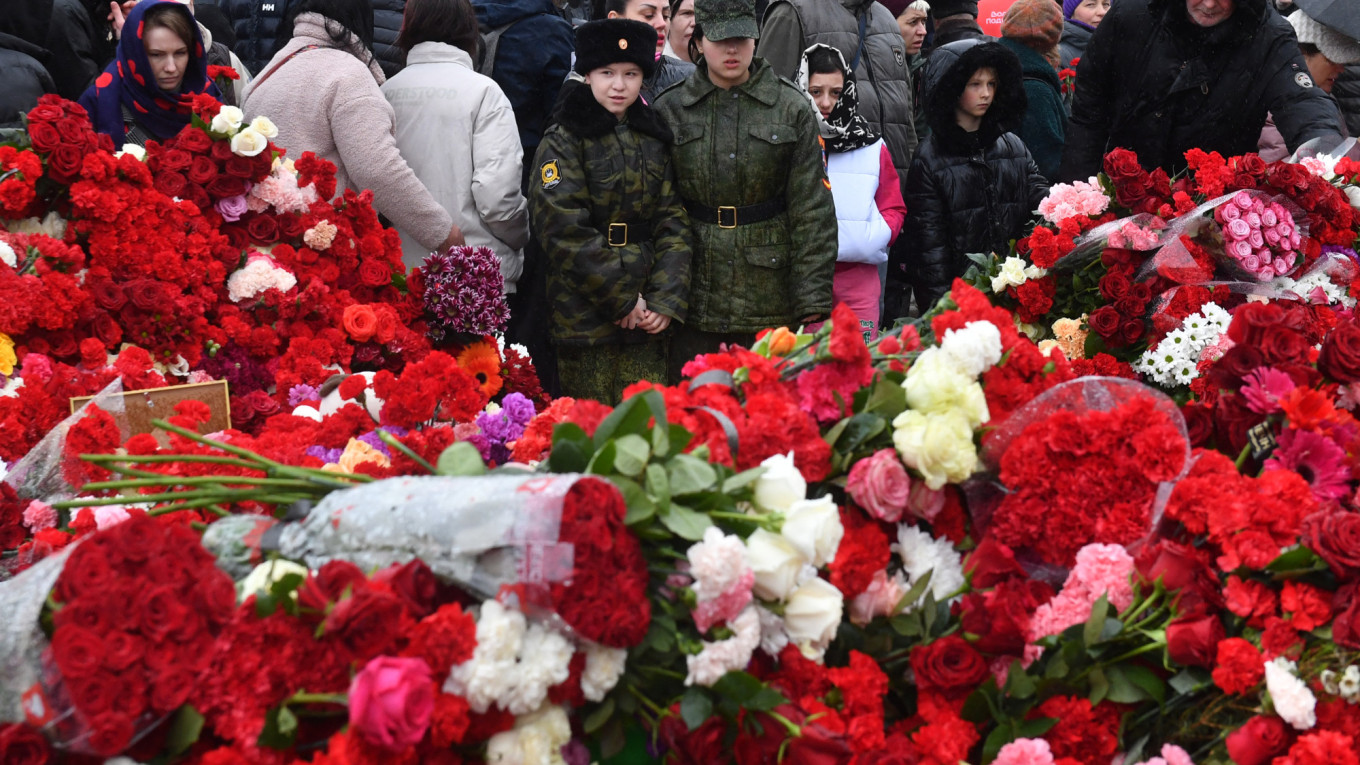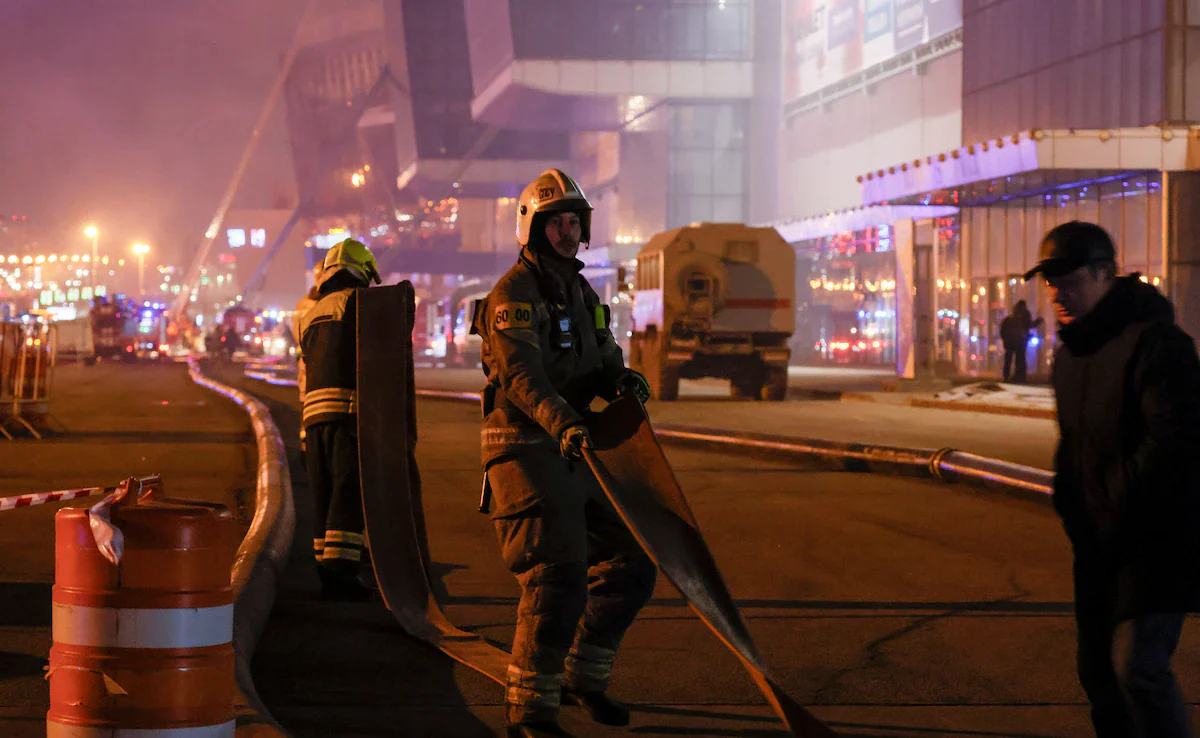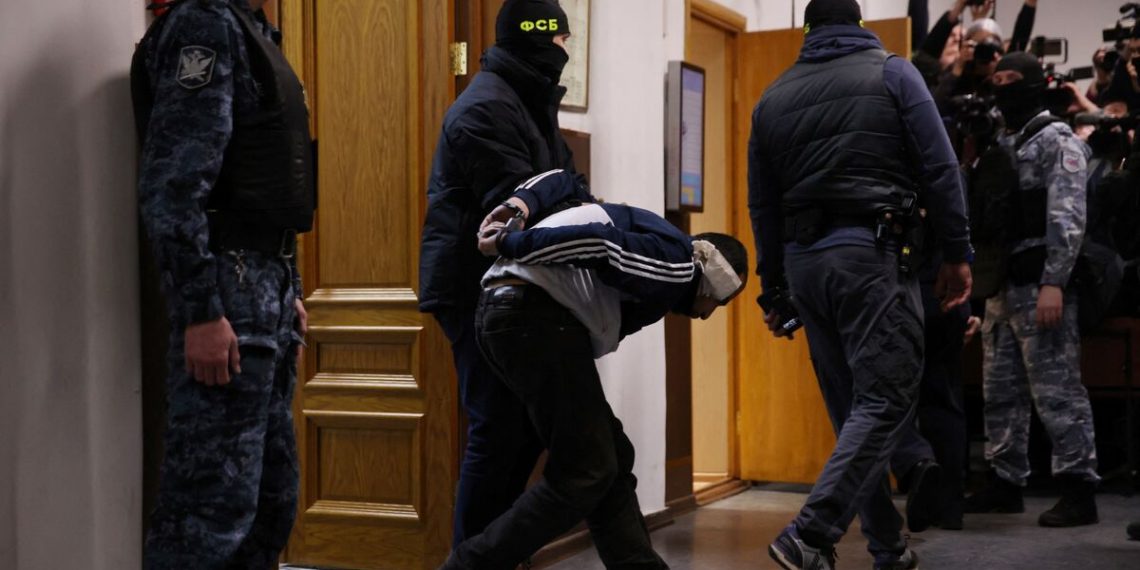Following a mass shooting near Moscow, Russia’s security state, led by the FSB, faced scrutiny over potential oversights and intelligence failures.
Tasked with diverse responsibilities including counterespionage, suppressing dissent, and thwarting external threats, the FSB’s focus on these priorities may have led to lapses in addressing emerging dangers.
The agency’s relentless pursuit of Ukrainian saboteurs and political opponents, coupled with efforts to disrupt foreign intelligence activities, has strained its resources and attention.

Former U.S. intelligence officials and Western analysts suggest that this focus could have resulted in the neglect of other threats, such as Islamist militants.
While President Putin attributed the attack to radical Islamists, questions persist about the FSB’s ability to prevent such incidents.
Despite claims of thorough planning by the perpetrators, the attack exposed vulnerabilities within Russia’s security apparatus and raised doubts about its effectiveness in maintaining internal stability.
The Kremlin’s response, citing limited intelligence-sharing with the West, underscores broader challenges in confronting terrorism. While Putin vowed to uncover the orchestrators behind the attack, concerns linger about Russia’s ability to address evolving security threats.

The incident, which claimed numerous lives and left hundreds injured, challenged Putin’s longstanding pledge of stability and security to the Russian people.
Despite his firm grip on power, the attack underscored the complexities of maintaining order in a volatile geopolitical landscape.
As investigations continue, the FSB faces mounting pressure to reassess its priorities and bolster intelligence capabilities to prevent future tragedies. The shooting serves as a sobering reminder of the ongoing threats facing Russia and the imperative of effective security measures.





